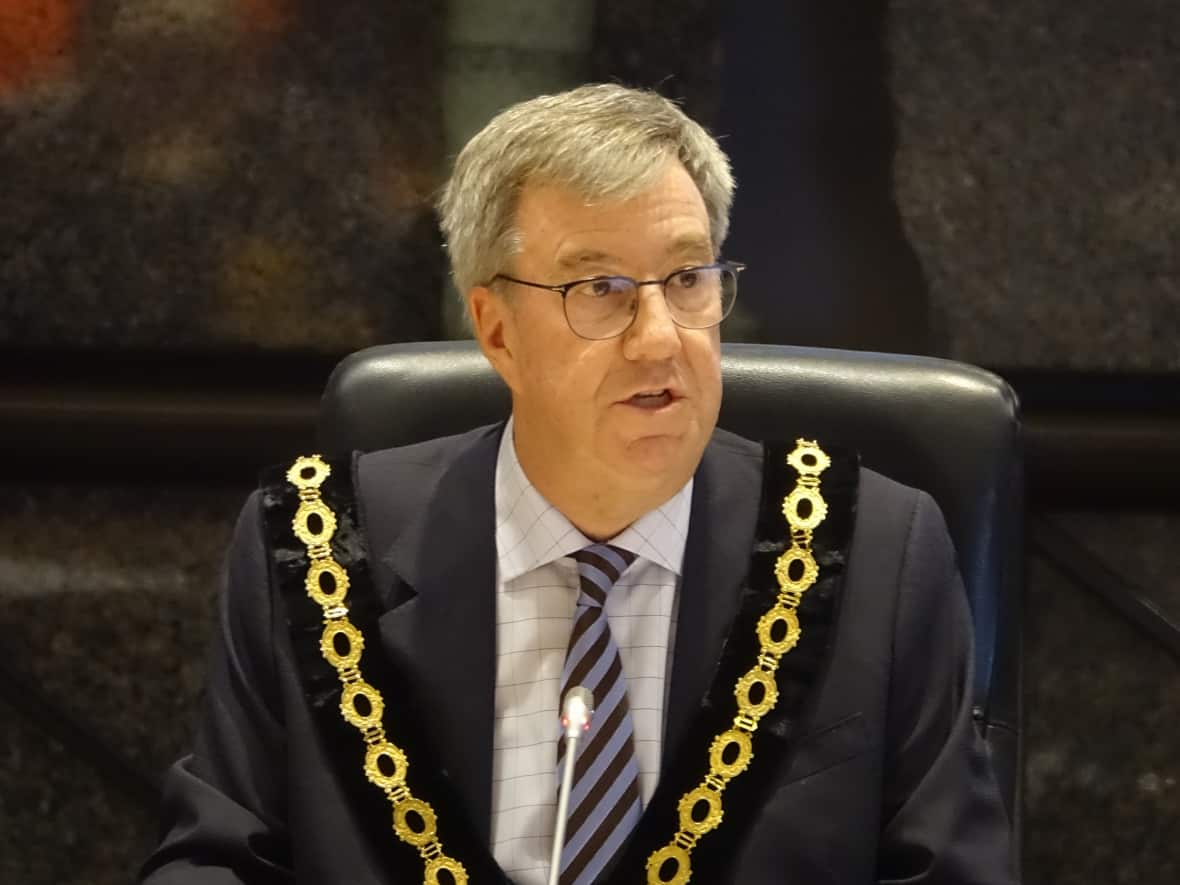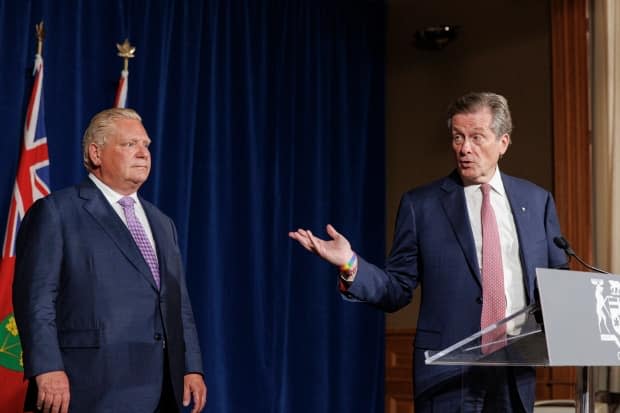Ottawa mayoral candidates should vow not to use 'strong mayor' powers, Jim Watson says

Outgoing Ottawa Mayor Jim Watson says everyone in the race to to step into his shoes in October should commit not to use so-called strong mayor powers tabled by the provincial government on Wednesday.
Municipal Affairs and Housing Minister Steve Clark introduced legislation called the Strong Mayors, Building Homes Act.
If passed, it would allow the mayors of Toronto and Ottawa to, among other things:
Veto bylaws approved by council if they hamper matters deemed of provincial priority.
Hire the chief administrative officer and municipal department heads, and create and re-organize departments.
Appoint chairs and vice-chairs for identified committees and local boards, and establish new identified committees.
Bring matters for council consideration related to provincial priorities.
Propose the municipal budget.
City council would be able to override a mayor's veto of any budget amendments and bylaws with a two-thirds majority vote. Council would also be able to propose amendments to the municipal budget.
Last month, Premier Doug Ford said he was planning a strong mayor system for Toronto and Ottawa, and was considering expanding it to other cities.
If the legislation is passed, it would take effect Nov. 15 — the start of the new municipal council term after elections on Oct. 24.

In an interview Wednesday ahead of the legislation being introduced, Watson said Toronto is a much bigger city and there may be reasons to implement such a system there, but that in Ottawa, he doesn't think it's needed and has "never even considered it."
It would "marginalize" the roles and responsibilities of city councillors, Watson said, adding that he's managed to get 98 per cent of votes passed across his three terms by working with them.
More funding from the federal and provincial governments would better increase housing supply, he said.
"I would hope they just remove Ottawa [from the legislation] altogether, and if they don't, I think the candidates for mayor should commit to not using that power during their term of council," Watson said.
Toronto mayor in favour
John Tory, Toronto's mayor, said in a statement last month that he would welcome expanded powers.
"'Strong Mayor' powers are something that I've said I would support — I talked about it before the last election," Tory said.
"I understand this is something that the province is exploring in order to get more homes built as quickly as possible."
Ottawa city councillors oppose move
Coun. Jeff Leiper of Kitchissippi called the move "fundamentally anti-democratic," and added that Ottawa city council is already "very development-friendly."
"The housing argument rings false in my view, just given the history of development review and development approvals in this city," Leiper said.
Coun. Keith Egli, who represents Knoxdale-Merivale, said Wednesday that he wants all mayoral candidates to "clearly and unequivocally" state they won't use strong mayor powers if the provincial bill passes and they're elected.
"For me a strong mayor is a mayor that can work with the other parties in the room, create a majority around the table, and get their agenda through in that way," Egli said.
"The current system is not perfect, far from it, but it does create almost a natural check and balance."
Egli said the strong mayor concept wasn't discussed during the provincial election, and that while there may have been discussions or consultations in Toronto, that hasn't been the case in Ottawa.
"If you want to pilot it in Toronto ... see if it works, and leave Ottawa out of it until there can be a real discussion around whether it works, and whether the citizens of Ottawa want it," he said.


